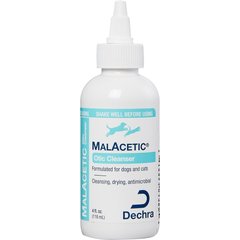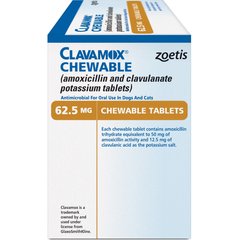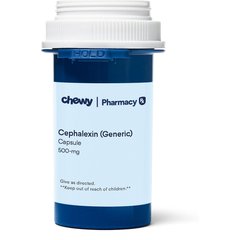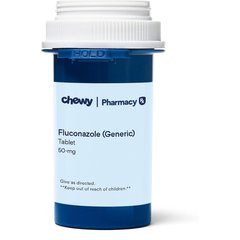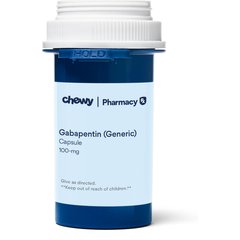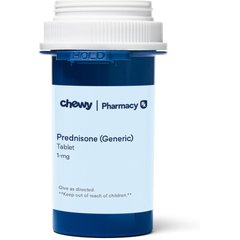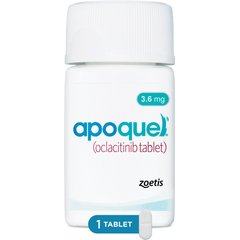Dog Ear Infections: Causes, Signs, and How to Treat

Photo by Chewy
Are your dogs’ ears a little stinky? Or maybe they seem redder than usual?
If your pup is also itching or rubbing them on the floor, they might have an ear infection.
Ear infections in dogs are common, and they’re also a source of discomfort that can cause pain and, if left untreated, even lead to deafness.
Here’s how to get your dog some relief.
Key Takeaways
- Ear infections can be very painful for dogs. If you suspect your dog might have an infection, see a veterinarian right away.
- Certain breeds may be more affected by ear infections. For example, Cocker Spaniels and Beagles have ears that can trap moisture and debris.
- Symptoms of an ear infection include a bad odor, scratching, hair loss, and redness.
- Untreated ear infections can lead to deafness, so it’s important to get care early on.
What Is a Dog Ear Infection?
Ear infections in dogs are not uncommon, and one stat says that 1 in 7 pups seen in veterinary practices will get an ear infection at some point in their life.
Also referred to as otitis externa, ear infections tend to affect certain breeds more, although any dog can get one. However, many dogs are predisposed because of pendulous ears, excessive hair or wax buildup, or narrowed ear canals.
Pet parents of Cocker Spaniels, Golden Retrievers, Labrador Retrievers, Shar-Peis, Bulldogs, Beagles, and Lhasa Apsos, in particular, should be extra vigilant—though that list isn’t exhaustive.
Your vet can tell you if your dog is more likely to be at risk.
What Are the Signs of an Ear Infection in Dogs?
Signs of ear infections in canines include:
- A bad odor
- Excessive debris or fluid in the ear
- Head shaking
- Scratching
- Hair loss, scratches on the ear, head, or face from itching, and redness in and around the ears and canals
- Thickened skin and narrowed ear canal (in severe or chronic infections)
What Causes Ear Infections in Dogs?
Bacteria and yeast are the common culprits when it comes to an ear infection.
The overgrowth of bacteria and yeast is usually caused by an underlying change or condition.
Possible causes of ear infections in dogs can include:
- Allergies
- Endocrine issues, like hypothyroidism
- Foreign debris (grass, dirt, sticks, or impacted wax)
- Parasites (ear mites)
- Excessive moisture
- Autoimmune disease
- Tumors
Dog Ear Infection Treatment
If your veterinarian suspects your dog has an ear infection, they will look at the ear externally and internally to evaluate the ear canals and ear drum.
Using a cotton swab, a vet will take a sample of ear wax or debris inside the ear canal to see if the culprit is bacteria, yeast, or both. Medication is usually a drop or ointment, along with a medicated ear cleaner.
Try an effective ear cleanser approved by your vet, like Virbac Epi-Otic Advanced Ear Cleaner for Dogs & Cats, Pet MD Tris Flush Dog & Cat Ear Cleaner, or MalAcetic Otic Cleanser.
Recommended Products
Your vet may also prescribe oral antibiotics like Clavamox or Cephalexin for bacteria or antifungals like fluconazole for yeast.
Recommended Products
They may also give gabapentin or tramadol for your dog’s pain, and possibly steroids like prednisone to help with the discomfort and inflammatory response.
Recommended Products
Additional tests or treatment may be recommended to determine the underlying cause. For example, a food trial could be on the table if a food allergy is suspected, or a CT scan or MRI could be recommended if your veterinarian wants to see if there is a middle or inner ear infection or if ear surgery is needed.
How Can You Help Your Dog Feel More Comfortable?
Cleaning your dog’s ears is important throughout treatment. Follow your vet’s recommendations closely.
This is a tough time for your pup, so offer lots of positive reinforcement—like treats and praise—to reward them for sitting through cleanings or taking their medication. Choose treats that are soft and easy to chew.
Recommended Products
If your dog has a difficult time staying still for ear cleaning, place them in the bathtub and smear a yummy snack on the side, like a Kong Stuff’N Easy Treat, to keep them occupied while you clean.
Recommended Product
Never stuff anything inside the ear canal, especially a Q-Tip, which can puncture their ear drum. If you notice that the ear looks worse or there’s a change in your dog’s hearing, stop the medication and contact your veterinarian immediately.
How Do You Prevent Dog Ear Infections?
Not every ear infection can be prevented, but there are some steps you can take to minimize your dog’s risk:
- If your dog (or their breed) is predisposed to ear infections, check their ears more frequently.
- Proactively manage underlying allergies or chronic conditions with your vet’s guidance. If allergies are the cause, your vet can help determine a treatment plan based on the allergen. Vets commonly recommend Apoquel to treat itching and inflammation related to allergies in dogs.
Recommended Product
- Stay current on your dog’s flea and tick medications, because extra itching could worsen an ear infection.
- Dry your pup’s ears thoroughly after bathing or swimming, since excessive moisture can create a welcoming spot for bacteria or yeast to grow.
Not all dogs require frequent ear cleanings, so ask your vet how often you should clean your pup’s ears.
FAQs About Dog Ear Infections
Can you give your dog ear drops for their infection?
Never give your dog ear drops meant solely for humans. Your vet may prescribe ear drops for your dog and only use products they recommend.
How can I treat my dog’s ear infection at home?
You shouldn’t treat your dog’s ear infection on your own. Ear infections require a trip to the vet so that you veterinarian can make a proper diagnosis and prescribe the necessary medication. Prompt treatment is critical, as ear infections are painful and can lead to hearing loss if not treated.
Are my dog’s ears infected or just dirty?
It’s possible that your dog’s ears are both infected and dirty. If there’s any doubt, head to the vet.
What should you do if your dog has an ear infection but you can’t afford a vet?
Dogs with an ear infection need to see a vet, but there are lower-cost options. Some vets offer payment plans like CareCredit or Scratchpay. Some cities have reduced-cost veterinary care or mobile clinics; ask your local Animal Humane Society or other animal organizations for recommendations. Chewy’s virtual vet option is also cheaper than a typical in-person vet visit, and Chewy vets can prescribe prescriptions virtually in most U.S. states.


